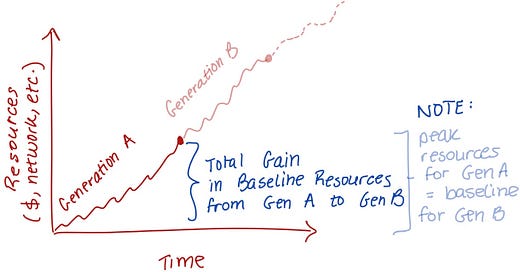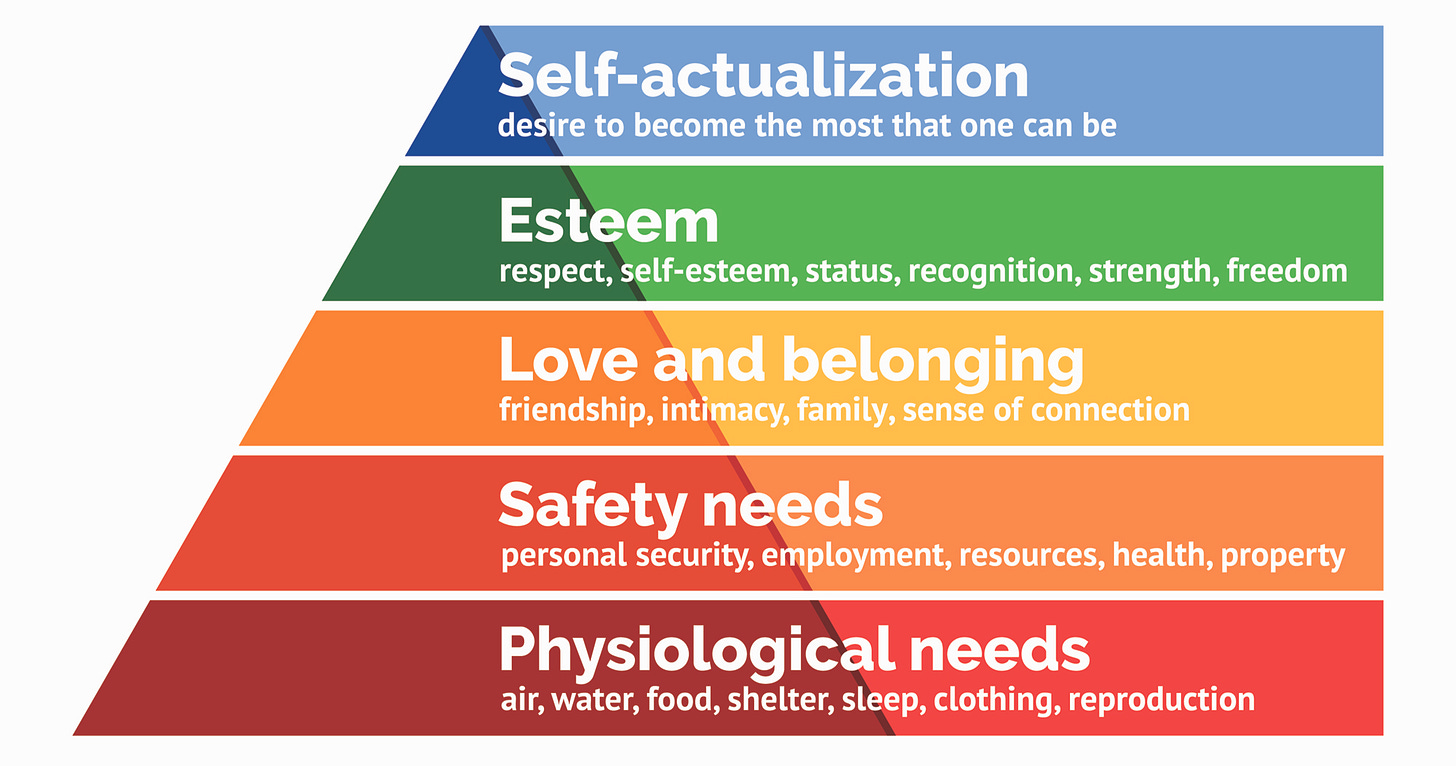Hello Guys and Gals. Welcome to another issue of this newsletter. This week1, I’ve been on two sides of work; working behind the scenes of my website2 and reading and writing about high-net-worth individuals (HNWI).
The world of the ultra-rich is fascinating, tbh. I do enjoy reading and daydreaming (more of daydreaming) about the systems and processes or the lack of them when it comes to wealth management and preservation.
HNWI enjoy special consideration, such as better terms in deals and negotiations. They do have wealth managers who help them preserve their assets. Some services they enjoy include tax planning, and estate planning, amongst others.
Who wouldn’t want to be a trust fund kid? More importantly, who doesn’t want to enjoy the benefits of having a safety net?
If you did not have one growing up, it makes sense that you provide for your kids. You do not have to provide everything for them. It would suffice that you lay the groundwork for them to build upon. At least Rome wasn’t built in a day, but they kept laying the bricks one after another.
You have to start with what you have. Then make it better for your wards, they make it better for their wards, and on and on it goes. It could simply be that you have good financial habits and instil those habits in them too.
The idea is that the next generation’s starting point is the peak of the previous generation. It is to make better the future of our wards.
This does not have to be in monetary or financial aspects alone. Your circle or network can also be of tremendous benefit to your children.

It is essential to understand that our actions have ripple effects for generations.
Some of the ways the ultra-rich do it:
Having a family business and having their kids on board: The stereotypical Asian family shop is probably the smallest unit. On the other end is having kids or family members collectively owning a large proportion of a publicly traded company, usually founded by their parents or grandparents, such as the Walton family and the Ambani family.
Creating family offices: Family offices are entities established to help one or multiple families manage their wealth. There is no universal definition of a family office because every family office has its differences. The saying "when you know one family office, you know one family office" explains how different family offices are from one another. Family offices can be established for more than financial purposes, such as staff management, philanthropy, legal and advisory, family governance etc. Examples of family offices include John Lim’s JL Family Office, Jeff Bezos’s Bezos Expeditions, etc.
Enough about the ultrarich. The chances of someone ultrarich reading this is less than 1%, so 🤷♂️. On the other hand, what does the everyday person do to have their offspring better off?
Education: Encourage education in and out of school. Children with educated parents find it easier to navigate life. They tend to live a happier, wealthier and healthier life. Lifelong learners also tend to have more satisfaction in life. Having your children thread the path of learning is one of the surest ways for them to begin where you peaked.
Practising the habits we want our children to have: For various (maybe legitimate) reasons, most parents do not cultivate values and habits they want their children to cultivate. Children tend to mimic their parents. Good habits tend to create an environment in which such habits are encouraged, making it much easier for children to have them. It creates a positive loop where both the parent and children benefit. The habit is reinforced and engrained in the children.
Having difficult conversations: Money or wealth is considered taboo in many families. Breaking that circle makes it easier for the younger generation to understand what money is, and how it works.
Conclusion
Tying everything together, there are ways very wealthy people try to make their children better off. While it may be out of reach for the average individual, there are also things the average person can do to improve their children’s lives.
Like Maslow’s hierarchy of needs, parents try their best (most times) to build the pyramid's foundation with the hope that their children move upward and build upon that for the next generation. This is the basis of generational wealth.
The first set of intentional parents goes about solving physiological needs. They provide the basics and a little more. The next generation does not have to think about the same problems their parents thought about, they proceeded to solve the next level of needs. The third generation builds off of that, and it continues. A generation might provide for more than one level of needs. They might provide two steps and then the next generation builds on what is available.
Similarly, in almost all endeavours in which precedence matters, such as science and technology, a new solution or method is a credit not only to the person or team that found it but to all those who laid the path towards the solution. And this is the reason why Isaac Newton remarked in a letter,
“If I have seen further, it is by standing on the shoulders of giants.”
So, my question is, what are you passing on to the next generation?
Readings
Short-sightedness was rare. In Asia, it is becoming ubiquitous My favourite
Too Many Assholes
4. Exponential Aspiration
This has been a draft for over two months.
Thanks to Ghost’s latest update, you can now comment on my website.







As always, thanks for sharing, Muhammad.
I can resonate with the last part of the newsletter that says that we see further when we climb on the shoulders of giant.
Do enjoy the rest of your week.
interesting read Muhammad.
I can definitely relate to two things: parents building something to build solid financial foundation for their kids, my parents definitely work their hind off to do it.
Also myopia is the norm in Asia, almost everyone I know my age in school has it lol